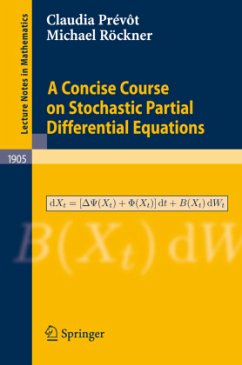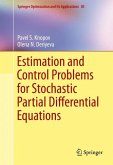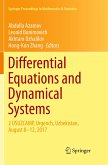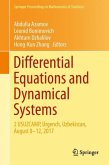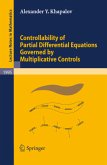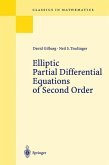These lectures concentrate on (nonlinear) stochastic partial differential equations (SPDE) of evolutionary type. All kinds of dynamics with stochastic influence in nature or man-made complex systems can be modelled by such equations. To keep the technicalities minimal we confine ourselves to the case where the noise term is given by a stochastic integral w.r.t. a cylindrical Wiener process.But all results can be easily generalized to SPDE with more general noises such as, for instance, stochastic integral w.r.t. a continuous local martingale.
There are basically three approaches to analyze SPDE: the "martingale measure approach", the "mild solution approach" and the "variational approach". The purpose of these notes is to give a concise and as self-contained as possible an introduction to the "variational approach". A large part of necessary background material, such as definitions and results from the theory of Hilbert spaces, are included in appendices.
There are basically three approaches to analyze SPDE: the "martingale measure approach", the "mild solution approach" and the "variational approach". The purpose of these notes is to give a concise and as self-contained as possible an introduction to the "variational approach". A large part of necessary background material, such as definitions and results from the theory of Hilbert spaces, are included in appendices.
From the reviews:
"This monograph is an elegantly and economically written first introduction to the field and meets the expectations of the title entirely. A great advantage of this account; is its wide self-containance of the plot, the completeness of all proofs, as well as a nice overview over the different notions of solutions of SPDEs culminating in the Yamada-Watanabe theorem entirely proven in the appendix. This book might be particularly helpful for graduate students and young researchers to get acquainted with this sophisticated area of research." (Micheal Högele, Zentralblatt MATH, Vol. 1123 (1), 2008)
"This monograph is an elegantly and economically written first introduction to the field and meets the expectations of the title entirely. A great advantage of this account; is its wide self-containance of the plot, the completeness of all proofs, as well as a nice overview over the different notions of solutions of SPDEs culminating in the Yamada-Watanabe theorem entirely proven in the appendix. This book might be particularly helpful for graduate students and young researchers to get acquainted with this sophisticated area of research." (Micheal Högele, Zentralblatt MATH, Vol. 1123 (1), 2008)

